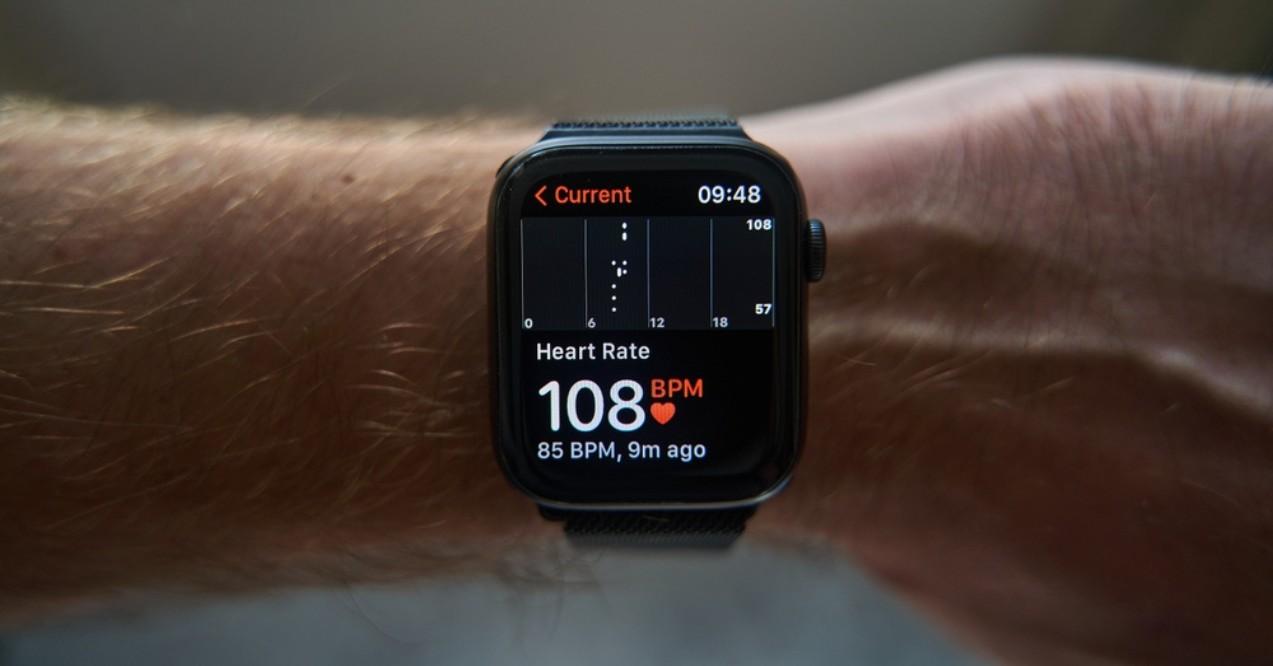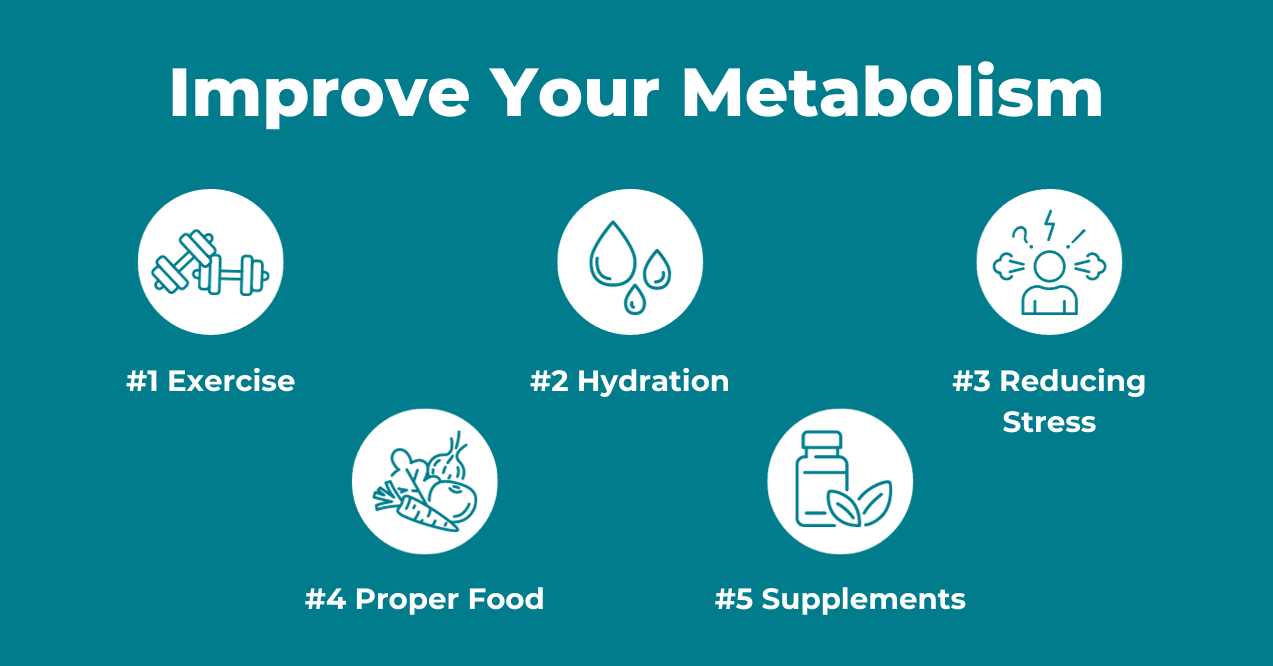7 Signs of Fast Metabolism
Discover if you have a speedy body engine with our list of 7 signs of fast metabolism. It's time to unlock your metabolic secrets!


When you hear people talk about signs of fast metabolism, do you immediately check out? We’ll have you know that there’s nothing boring about this whole subject. It’s certainly a mysterious biological process that scientists are still trying to uncover, even up till today. After all, don’t you want to know why your body behaves in a particular manner?
You’ve probably read many articles with headlines boasting the most effective methods to boost a metabolism rate or a magical pill that will do the same. Do these have any truth in them? Is there a secret formula that only a few hold to manipulate this bodily function? Or is the whole thing just a load of rubbish?
In this article, we’ll uncover the truth. Everything we say here, we’ll back up with scientific resources. We want you to feel confident with our content because we know, more than anything, how important your body is to you. Throughout this article, you’ll have a clear idea of fast metabolism and whether it benefits you or not. We’ll also take a deep dive into symptoms of the condition and answer a few frequently asked questions. By the end of this piece, you’ll understand that resetting your metabolism isn’t as challenging as you think.
What Is a Fast Metabolism and Why Do I Get It?
Do you know the speed of your basal metabolic rate (BMR)? That shows how quickly your body burns through stored glycogen or fat to release energy at periods of rest. If you have a fast metabolism, you burn calories quicker than those with a slow metabolic rate. A few factors influence this. Some are biological or genetic, while others are environmental. These often interact with each other, and this fact highlights the complexity of metabolism for each individual.
- Muscle Mass: Do you have a high proportion of muscle mass? If you do, you may have a fast metabolism because muscle requires a higher level of energy than fat.
- Age: If you wonder: what age does metabolism slow down? In essence, older people have a different build compared to the youth. When you are young, you tend to have more muscle mass and less fat. That’s when your metabolic rate is at its speediest.
- Gender: Men and women have different body structures and hormones. Women generally come with more body fat, while men have more muscles, leading to a higher metabolism in the latter.
- Physical Activity: Do you perform rigorous daily activities? Perhaps you have a physically strenuous job or go to the gym daily. These routines will positively affect muscle growth and, subsequently, your metabolism rate.
- Dietary Habits: When one consumes foods rich in protein, more energy is necessary to aid the digestion and absorption processes, leading to a temporary rise in the metabolic rate.
- Inherited Traits: Some folks have a higher rate because of genetic factors that influence the BMR.
- Hormone Regulation: Because of genetic distinctions, our bodies produce and regulate hormones differently. The thyroid hormones affect the metabolic rate.
As you can see, a fast metabolism is a multifaceted trait. Sure, some factors above are out of our realm of control. Nonetheless, we can manage others by making certain lifestyle choices.
Is It Good to Have Fast Metabolism?
The answer to this question differs for each individual. A fast metabolism isn’t necessarily good or bad – it isn’t a clear-cut type of situation. Let’s discuss some pros and cons to shed some light on the topic.
First, let’s discuss the advantages. A fast metabolism rate may benefit you if you’re trying to lose weight. It means that you’ll burn calories quicker and have an easier time maintaining that healthy range. It also implies that you’ll feel less fatigue as you go about your day. Essentially, the fast metabolism delivers more energy and assists with hormone regulation. With the smooth release of chemical messengers, mood stabilizes and becomes better.
On the other hand, you may not want a fast metabolic rate if you’re struggling to gain weight or muscle mass. Because you may burn through your energy quickly, you may not get adequate nutrients from the food you consume. That leads to nutrient deficiencies.
Moreover, people with high metabolism tend to sweat more as they generate more heat than others. They might also have a more challenging time catching quality sleep.
As you can see, we can’t tell you whether a fast metabolism rate will be good for you or not. It aids the weight loss process but can lead to insomnia at the same time. To grasp this subject better, it helps if you learn the signs of fast metabolism.
What Are the Signs of Fast Metabolism?
Your metabolism is the engine that powers your body, determining how efficiently it converts food into energy. While metabolic rates can vary among individuals, some signs may indicate a faster-than-average metabolism. Understanding these signs can help you tailor your lifestyle to support your body’s unique energy needs.
So, what are the signs of a fast metabolism? Recognizing them can provide valuable insights into your body’s unique characteristics. It’s important to remember that metabolism is a complex interplay of genetic and lifestyle factors. While a fast metabolism may come with certain advantages, maintaining a balanced and healthy lifestyle is crucial for overall well-being.
1. Increased Calorie Burning

One of the most unmistakable signs of fast metabolism is increased calorie burning, also known as an elevated metabolic rate. It is a phenomenon where the body expends more energy in the form of calories. If you find it easy to maintain a healthy weight or shave off a few pounds, your metabolic rate is probably faster than average.
This process is essential for maintaining basic bodily functions, such as breathing, circulation, and cell repair. Several factors can contribute to increased calorie burning, influencing overall metabolism. These include your BMR, muscle mass, physical activity, the thermic effect of food (TEF), hormones, genetic factors, age, stress, and environmental aspects.
2. Frequent Sweating

Sweating has very intricate connections to metabolism, particularly through the process of thermoregulation. Thermoregulation is the body’s mechanism for maintaining a relatively stable internal temperature. As the body metabolizes food to produce energy, heat is generated as a byproduct.
Sweating is one of the key ways the body dissipates this heat to prevent overheating. When sweat appears on a skin’s surface, evaporation occurs, which takes care of the excessive heat. That’s why you’ll notice that you sweat more when exercising. It’s merely the body’s way of regulating body temperature and meeting increased energy demands. Furthermore, hyperthyroidism, a medical condition, may also influence metabolism, leading to increased sweating.
3. Difficulty Falling Asleep

The relationship between sleep problems and metabolism is complex and bidirectional, with each influencing the other. Persistent difficulty falling asleep, staying asleep, or experiencing restorative sleep, can have notable effects on metabolic processes. Conversely, disruptions in metabolism, such as imbalances in hormonal regulation, can contribute to the development or exacerbation of chronic sleep loss.
Chronic stress, a common factor in impaired sleep quality, can lead to elevated levels of the stress hormone cortisol. Increased cortisol levels, especially when they persist at night, may interfere with the natural sleep-wake cycle. Cortisol regulates metabolism, influencing processes such as blood sugar levels and fat metabolism. Disruptions in cortisol levels may contribute to metabolic imbalances.
4. Constant Hunger

As mentioned, metabolism involves the conversion of food into energy to fuel various physiological functions. The basal metabolic rate represents the energy expended at rest to maintain basic bodily functions. If metabolism is high, the body may require more calories to meet its energy needs. Hence, one may feel hungry all the time.
Further, hormones play roles in blood sugar regulation. After a meal, glucose hormone helps cells absorb glucose for energy. If this hormone is overactive, it can lead to a rapid drop in blood sugar, triggering hunger. Fluctuations, especially drops in blood sugar, can signal hunger as the body seeks to replenish its energy stores.
5. Increased Energy Levels

Increased energy levels are a reflection of a well-functioning metabolism. The efficiency with which the body converts nutrients into energy, coupled with factors like physical activity, hormonal balance, and adequate sleep, contributes to an overall sense of vitality and increased energy levels.
A higher BMR indicates a faster metabolism, meaning the body requires more calories to sustain these fundamental processes, contributing to increased energy levels. TEF refers to the energy expended during the digestion and absorption of food. Different macronutrients have varying thermic effects. For example, protein has a higher TEF, meaning that the body expends more energy to digest and absorb protein-rich foods, contributing to increased overall energy expenditure.
6. Increased Heart Rate

The heart rate, or the number of heartbeats per minute, is a crucial component of the cardiovascular system, and it responds to metabolic demands, especially during physical activity. This interconnectedness ensures that the cardiovascular system efficiently meets the metabolic needs of the body, delivering oxygen and nutrients to tissues.
Even at rest, the heart continuously pumps blood to provide oxygen and nutrients to organs and tissues. The heart rate, in conjunction with stroke volume (the amount of blood pumped per heartbeat), determines the cardiac output. Increased heart rate is a mechanism to deliver more oxygen-rich blood to tissues and muscles to support increased metabolic activity.
7. High Body Temperature

In general, a fast metabolism rate is often associated with increased heat production, and this can contribute to elevated body temperature. A byproduct of metabolic reactions is heat. A higher metabolism rate means more energy production and, consequently, more heat generation.
In addition, a high BMR, overactive thyroid, physical activity, increased muscle mass, and nutrient metabolization lead to a higher body temperature. These are all factors related to your metabolism rate. You may also experience an elevated body temperature in response to invading pathogens or hyper-immune conditions. As the body mobilizes resources to fight the illness, the metabolic rate will rise, leading to higher temps.
How to Improve Your Metabolism
How to reset your metabolism? Improving your metabolism involves adopting a holistic approach that combines lifestyle, dietary choices, and physical activity. Here are several strategies to enhance and support a healthy metabolism for people with slow metabolism symptoms:

Tip 1: Do Cardiovascular Exercise, Strength Training, and High-Intensity Interval Training
Engage in aerobic activities such as walking, running, cycling, or swimming. Regular cardiovascular exercise can boost your metabolism and contribute to weight management. Include resistance training or strength exercises to build and maintain lean muscle mass. Muscle tissue burns more calories at rest than fat tissue, contributing to an elevated metabolism. For more, incorporate HIIT workouts into your exercise routine. These short bursts of intense activity followed by rest periods can boost metabolism and improve cardiovascular health.
Tip 2: Hydrate Well
Green tea contains compounds like catechins that may have a small, positive effect on metabolism. Drinking green tea regularly can be a part of a healthy diet. Adequate hydration is essential for optimal metabolic function. Dehydration potentially slows down metabolism.
Tip 3: Use Stress Reduction Techniques
Chronic stress can influence hormonal balance and negatively impact metabolism. Practice stress-reducing techniques such as meditation, deep breathing, yoga, or mindfulness. Aim for 7-9 hours of quality sleep per night. Poor sleep can disrupt hormonal balance, including hormones that regulate appetite and metabolism.
Tip 4: Eat Appropriate Food Regularly
Don’t skip meals, and try to eat at regular intervals to keep your metabolism active throughout the day. Include protein-rich foods in your diet. Protein requires more energy for digestion and can contribute to a feeling of fullness. Consume whole, fiber-rich foods like fruits, vegetables, whole grains, and legumes. Certain spices, such as chili peppers, contain compounds that may temporarily increase metabolism and promote calorie burning.
Tip 5: Use Natural Supplements
Achieving optimal nutrition can be a nuanced endeavor, often complicated by factors such as stress, medications, illness, and food sensitivities that may hinder the body’s ability to absorb essential nutrients. Recognizing the multifaceted nature of this challenge, PureHealth Research has come up with a unique formulation, integrating cutting-edge scientific insights and natural ingredients to deliver an extraordinary solution, making it one of the best supplements for weight loss as part of a holistic approach to health.
Comprising five distinct blends, Metabolic Reds+ incorporates four adaptogenic superstars, 23 potent antioxidant-rich organic red fruits, six digestive enzymes, four powerful probiotics, and a carefully curated selection of three essential vitamins. This sophisticated combination is designed to enhance nutrient absorption, unlocking a plethora of benefits across various facets of health.
Adaptogens play a pivotal role in restoring equilibrium to imbalanced systems, either by stimulating or dampening as needed. The infusion of superior antioxidants provides a protective shield against the detrimental effects of cellular oxidation and tissue degradation.
Digestive enzymes facilitate the breakdown of complex building blocks into their smallest components, expediting absorption for maximum efficacy. Premium probiotics contribute to the nourishment of gut flora, enhancing digestion and fortifying leaky gut tight junctions to address immune system irregularities. Finally, it includes essential vitamins vital for releasing energy from food and burning more calories, ensuring comprehensive nutritional support.
With Metabolic Reds+, you’ll promote a long, healthy life with endless days bursting with energy. It’s no wonder that Dr. Holly Lucille is a proud endorser of this product. She understands, more than anyone, that a healthy metabolic rate begins with natural ingredients.
Key Takeaways
In conclusion, our exploration has shed light on the intricate interplay of factors influencing metabolism, from the biological and genetic to the environmental and lifestyle related. Understanding the nuances and signs of fast metabolism and the interconnectedness with various aspects of health provides valuable insights.
We’ve uncovered the dynamic relationship between chronic sleep loss, constant hunger, and increased energy levels with metabolism, recognizing the significance of holistic well-being. The connection between high body temperature and a fast metabolism has been unveiled, showcasing the marvel of physiological responses.
As we navigate the complex landscape of metabolism, it becomes clear that the following are crucial:
- Making informed choices
- Embracing physical activity
- Nurturing a balanced lifestyle
By doing so, we empower ourselves to optimize metabolism, fostering overall health and vitality. In this journey, science and nature collaborate to illuminate a path toward wellness through a deeper understanding of our metabolic intricacies.
Frequent bowel movements alone may not be a reliable indicator of a fast metabolism. While metabolism does influence digestion, factors such as diet, hydration, and gastrointestinal health also play significant roles in bowel regularity.
Various factors influence metabolism, and these vary among individuals. There’s no specific timeframe for developing a fast metabolism, as it depends on genetics, lifestyle, and other factors.
Directly measuring metabolism typically involves laboratory assessments. Common methods include indirect calorimetry, which analyzes oxygen consumption and carbon dioxide production. Alternatively, some fitness trackers and online calculators provide estimations based on factors like age, weight, and activity level.
Sign up for our Healthy Living newsletter!
Advertisement. This site offers health, wellness, fitness and nutritional information and is designed for educational purposes only. You should not rely on this information as a substitute for, nor does it replace, professional medical advice, diagnosis, or treatment. If you have any concerns or questions about your health, you should always consult with a physician or other health-care professional. Do not disregard, avoid or delay obtaining medical or health related advice from your health-care professional because of something you may have read on this site. The use of any information provided on this site is solely at your own risk.











